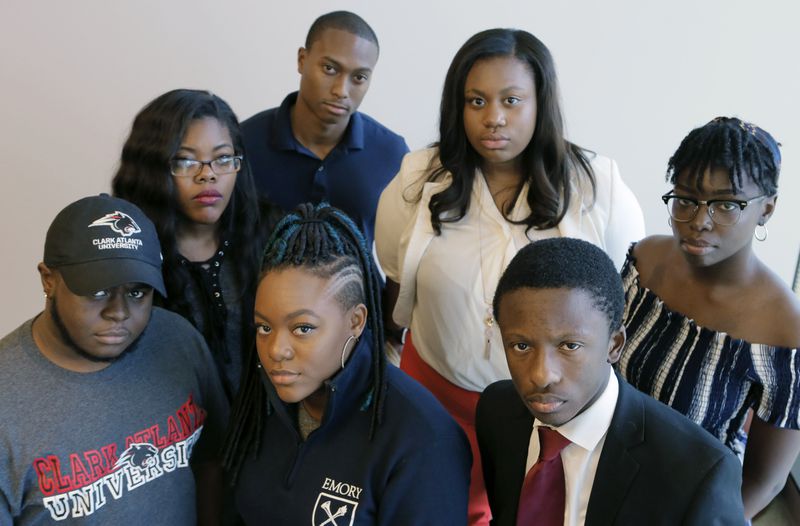One of the running themes in the Netflix series "Dear White People" is privilege.
Not only white privilege at the fictional elite Winchester University, but also privilege among the handful of black students - of varying economic, social, political and cultural backgrounds - who are not only navigating their way around the school, but around each other.
» Atlanta black students respond to 'Dear White People'
» Dear White People: ‘I’m a nuclear engineer’
» Dear White People: Hard conversations about the divide
But some of those same issues, or class conflicts, often arise at HBCUs as well.
As part of the AJC's RE:Race project's continued conversation about "Dear White People," with black college students throughout Atlanta, we looked at what privilege meant for them.
Specifically, the assumption that students who attend HBCUs view their black counterparts at PWIs (predominantly white institutions) to be privileged, or "bougie."
» MORE COVERAGE: How we experience race in Georgia
» Why do we need historically black colleges anyway?
Strangely enough, black students at PWIs say the same thing about their HBCU cousins.
"I get why people say that. I go to Clark Atlanta in the Atlanta University Center, which includes Clark, Morehouse and Spelman. We get called the bougie HBCUs," said Antonio D. Curren Jr., who graduated from CAU last week with a degree in mass media arts.
"But I don't see why. Most of our campuses are in low-income areas. I don't want to say that we are bougie, because a lot of us aren't. It is a difference being stuck up and being from a different background. It is a choice."
Credit: Bob Andres
Credit: Bob Andres
It was hard not to notice Chelsea Jackson, a 22-year-old rising senior at Emory University, shaking her head as Curren talked.
For the uninitiated, bougie is a truncated version of the "bourgeoisie," which generally refers to European middle class.
The term bougie has been adopted in black America as a back-handed diss, as well as an open compliment, to signify wealth and class or the aspiration to it.
Think Whitley Gilbert.
» THE MAYOR'S RACE: Is Atlanta ready to elect a white leader?
» FIRST PERSON: Your stories about Atlanta's racial lines
Jackson said, for a PWI, Emory is a mixed bag. She said she has black friends at Emory with brand new cars but others who struggle with financial aid.
"When I was considering Howard, the financial aid was not there, compared to Emory," said Jackson, who graduated from Southwest DeKalb High School.
"If I had a friend that was upper middle class and their parents could afford to send them to Howard, they could just go. But for me, if I didn't get the money, I wasn't going there. That is why I think more privileged black students go to HBCUs."
About the Author







